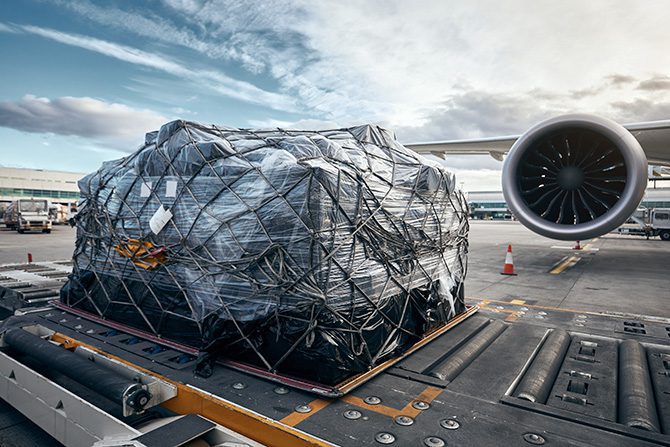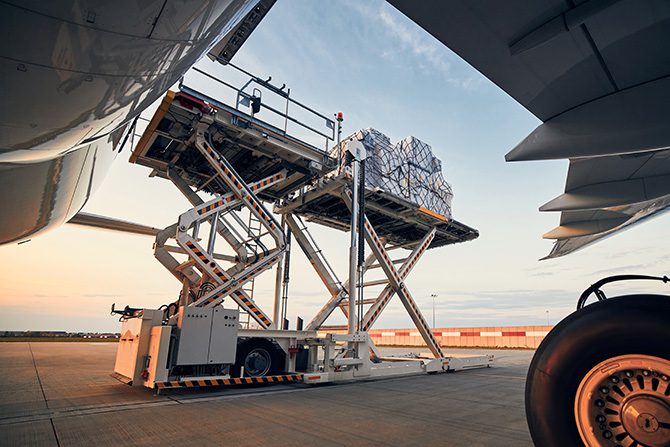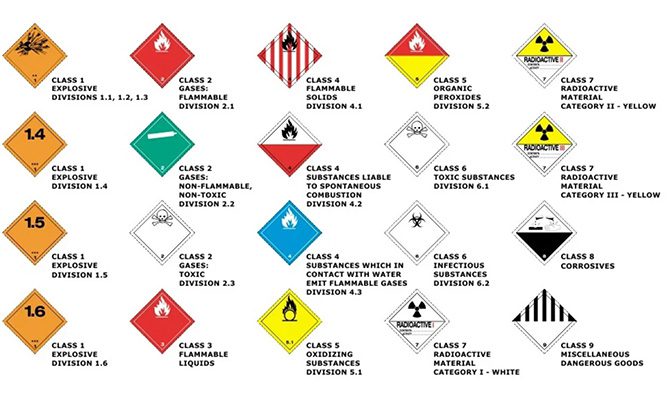
Air freight Logistics is an important tool in international trade, particularly for high-value products and perishable goods where safety and speed of delivery are critical factors in operations. Due to high volatility markets, as well as the need for immediate delivery by customers, air freight has become a very essential component of international trade. Air transportation provides significant advantages in the service of cargo transportation within the same country or internationally. But first, you must understand how it works to determine whether it is a profitable service for your company or not. The rise of e-commerce has increased the demand for airline services in recent years as customers have become more demanding about delivery times and security.
What are air freight advantages and to what extent can they be useful to you?
Air freight is ideal for the export of certain goods due to its nature as a mode of transportation that shortens distances. Among its benefits are:
- In terms of deliveries, you should expect them to arrive quickly. This has a positive impact on both customer satisfaction and financial costs. On one hand, it ensures that high-value items spend less time in transit, while on the other hand, you can recover your investment faster.
- Coverage and penetration are extensive. Having a strategic alliance with airline networks ensures that your products can arrive in cities and destinations other than seaports.
- Continuity and security of your product’s journey. By spending less time in transit, your cargo is less vulnerable to deterioration, damage, loss, or road theft.
- Less paperwork. In comparison to sea transportation, air travel requires less paperwork so you can take advantage of it.
However, air freight is only available when the budget allows it. Some of its disadvantages are higher costs, lower cargo capacity (compared to a truck or a ship), and the onerous requirements for the transportation of some hazardous products or substances.
As a result, you’ll need to conduct a cost-benefit analysis to determine whether your products are worth paying more for air freight despite its high costs. Key factors such as product obsolescence or customer demand for immediate delivery should be part of the equation.

Air freight is more expensive than other transportation means, make sure you always stay profitable.
Air freight logistics key players
The air freight supply chain involves a wide range of players. Here’s a shortlist of the main players involved in moving cargo from point A to point B using air freight.
- Customers, which can include both shippers (or suppliers) and recipients.
- Cargo agencies or freight forwarders. According to an International Air Transport Association (IATA) report, 85% of global merchandise is being handled by freight forwarders. Their role is to deal with any problem related to transportation, consolidation, storage, handling, packaging, and distribution of goods.
- Customs, which handle cargo entry and exit. They are local government entities responsible for collecting tariffs and for controlling the flow of goods between countries, including animals, transports, personal effects, and hazardous items.
- Airline companies. These companies may specialize in the transportation of passengers, cargo, or both. There are also cargo airline alliances, such as SkyTeam Cargo, which regroups companies such as Aeroméxico Cargo, Air France Cargo, KLM Cargo, Alitalia Cargo, Czech Airlines Cargo, Delta Cargo, and Korean Air Cargo. This type of alliance provides product deliverability to any city within its global network.
- Reception, storage, and ground transportation providers.
The integrators or logistics companies, such as The ILS company, are in charge of coordinating all of these key players. Our main function is to act as a direct link between the expeditor and the recipient, as well as to be responsible for the efficiency of the entire supply chain. Our management allows us to streamline processes, ensure cargo integrity, and improve delivery times.

There is numerous key players involved in air freight logistics.
Customized air freight forwarding supply chain
When you send an item using air cargo, here’s exactly what happens behind the scenes:
- It all starts when a customer needs to send an item to a specific location in the world that requires air cargo.
- Ground transportation to the airport is managed by the logistics company.
- The export documents are being processed.
- These documents must be delivered to the customs administration for assessment and approval.
- The cargo will be managed by the handling agencies, who will look after it in the storage terminal, on the ramp, and in the airplane holds.
- Once the item is loaded into the cargo hold of the plane, the airline is responsible for it during the flight and until it arrives at its final destination.
- When the ship arrives, the handling agencies are in charge of unloading and transporting it to the cargo terminal.
- There, the cargo agent double-checks that the product matches what’s written on the paperwork.
- The cargo is then admitted to the customs administration by a customs agent who receives the documents and proceeds with his inspection.
- Finally, the imported goods are handed to the recipient, who will distribute them to the final customers.
What a journey! And that’s just a quick snapshot of the logistics industry where thousands of products are being moved every day using different means, from ground transportation to air freight.

Air freight is only one step of the complete logistics supply chain.
General Cargo and Special Cargo
When it comes to the various types of cargo transported by air, they are divided into two categories: general cargo and special cargo. Special Cargo is then subdivided into smaller, more specialized groups.
General cargo refers to items that do not fall into the Special Cargo categories and do not require any special precautions or handling during air transport. Retail and most consumer goods (with the exception of mobile phones, tablets, and laptops), dry goods, hardware, textiles, and other items fall into this category. Consider your typical, everyday objects; the vast majority of them would fall into the general cargo area.
Things get a little more complicated when it comes to special cargo. Special cargo are goods that, due to their nature, weight, dimensions, and/or value, may have special requirements such as packaging, labeling, documentation, and transportation chain handling. Specific regulations govern the transportation of these goods, which must be followed when preparing, offering, accepting, and handling this cargo. Among the items are dangerous goods, live animals, perishable cargo, wet cargo, and time and temperature-sensitive products.
Limitations for shipping dangerous goods by an air carrier
When it comes to shipping dangerous goods, it is never acceptable to ship any substance that is likely to explode, produce a flame or liberate toxic substances during the flight. If a product has a slight possibility of being dangerous, it should not be transported on an aircraft under any circumstances.
The IATA has already classified a list of dangerous goods that go into the scope of special cargo.
- Explosives
- Gasses
- Flammable Liquids
- Flammable Solids; Substance Liable to Spontaneous Combustion; Substances which, in Contact with Water, Emit Flammable Gases
- Oxidizing Substances and Organic Peroxides
- Toxic and Infectious Substances
- Radioactive Material
- Corrosives
- Miscellaneous Dangerous Substances and Articles, Including Environmentally Hazardous Substances
Several classes are separated into other sub-divisions due to the wide scope of the hazards within the class

IATA classifications for dangerous and hazardous items
IATA Certified Partner
The complexity of air logistics operations, which include both the handling of merchandise to ensure its integrity and timely delivery, as well as the processing of essential export and import permissions, requires the search for a partner who can provide you with both, a compliant and customized solution.
At the ILS company, we are proud of being an International Air Transport Association (IATA) certified freight forwarder in the USA and Mexico and have direct access to many flight options. We offer a complete package of air freight services through our global network of logistics experts and innovative technology. Our suite of air freight services saves customers from the challenge of dealing with multiple carriers and sifting through laborious and often confusing customs documents.
In today’s competitive environment, you need to have a flexible and responsive approach to logistics. If you need a reliable air freight company to meet your business objectives, we are ready to help. Just give us a call or request an online quote and our team of professionals will be ready to meet your needs.


